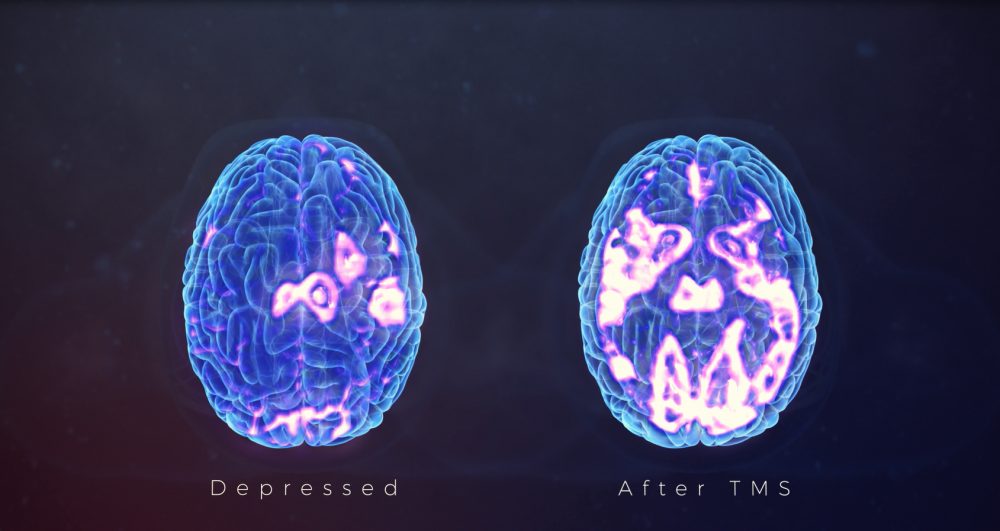TMS Services
TMS Services
TMS (Transcranial Magnetic Stimulation) is an FDA-cleared medical treatment. This treatment is non-invasive for patients who have experienced depression or who have not benefited from antidepressant medications in the past. TMS utilizes waves of highly focused magnetic pulses to stimulate areas of the brain that regulate mood and temperament. Ongoing clinical trials have found TMS useful for OCD, GAD, Addiction, and Autism.
TMS is FDA approved for
1. Major depressive d/o
2. Obsessive Compulsive d/o
3. refractory headaches
4. fatigue related to MS
it is pending approval for
1. Generalized anxiety d/o
2. childhood illnesses i.e. depression, anxiety
it is in research for
1. autism
2. tinnitus
3. stroke victims
4. addiction
5. eating disorders
6. auditory hallucinations refractory to medication treatment
For more information contact us!

About TMS
Magstim TMS Therapy is a new treatment cleared by the US Food and Drug Administration (FDA) for patients suffering from depression who have not achieved satisfactory improvement from prior antidepressant treatment. TMS stands for “transcranial magnetic stimulation.”
TMS Therapy is a treatment that can be performed in a psychiatrist’s office, under his or her supervision, using a medical device called the Magstim TMS Therapy system. Magstim TMS Therapy is:
- Non-invasive, meaning that it does not involve surgery. It does not require any anesthesia or sedation, as the patient remains awake and alert during the treatment
- Non-systemic, meaning that it is not taken by mouth and does not circulate in the blood stream throughout the body.
The typical initial treatment course consists of at least 5 treatments per week over a 4-6 week period, for an average of 20-30 total treatments. Each treatment session lasts approximately 19-40 minutes, depending on what the doctor determines is the correct protocol.
How does TMS work?
Is TMS covered by Insurance
Is TMS Therapy a good alternative for patients who cannot tolerate the side effects associated with antidepressant medications?
What is the typical course of treatment?
Any additional treatments are based on clinical judgment.
Is TMS therapy uncomfortable?
If necessary, you can treat this discomfort with an over-the-counter analgesic. If these side effects persist, your doctor can temporarily reduce the strength of the magnetic field pulses being administered in order to make treatment more comfortable.
Less than 5% of patients treated with TMS Therapy discontinued treatment due to side effects.
Our Services
Request an Appointment
Request an appointmnent at Hamilton Behavioral
